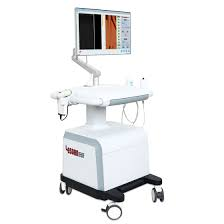How To Equip Your Medical Devices With AI
Artificial Intelligence, or AI, is a technology that has been around for decades but most recently has come to prominence in the personal sector. Find out what AI can do for your business, and how you can take advantage of it, in this blog about Personalized Medicine.
What is AI?
Artificial Intelligence (AI) is the use of machines to perform tasks traditionally requiring human intelligence, such as visual perception, speech recognition, decision-making and translation between languages. One of the key advantages of AI is its ability to interpret data and recognize patterns in new ways.
How to equip your medical devices with AI
AI is becoming an essential tool in medical devices. A company has developed an AI-powered medical device that can detect diabetic retinopathy and help prevent blindness caused by diabetes. With the injection of AI into their device, they were able to see that patients are less likely to get a severe eye infection when the device is fitted on their nose than when it is fitted on their lower back.
Benefits of AI on a Medical Device
AI is becoming more and more widespread in medical devices. For example, a blood pressure cuff can automatically measure its own pulse so it's always accurate and avoid a different measurement error. The same goes for an ECG machine; it can identify the QRS complex on an electrocardiogram without human intervention. AI also helps with diagnosing patients: AI can detect that something is wrong with a patient's heart or lung analytics before any symptoms come about.
Conclusion
AI is proliferating across the world's technology sectors. In healthcare, AI can help doctors detect disease earlier and improve treatment effectiveness.




Comments
Post a Comment